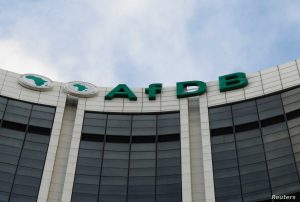Africa’s share of Global Trade Maintains 3% Despite AfCFTA – Report

A new report by the Economic Commission for Africa (ECA) reveals Africa’s contribution to global trade remains at less than 3%.
This figure is primarily attributed to merchandise trade, suggesting that African nations still engage in more trade with countries outside the continent than with each other.
The report on assessment of progress on regional integration in Africa shows Africa’s regional integration agenda is progressing, albeit slowly.
Also, the Programme for Infrastructure Development in Africa has seen mixed results in its efforts to enhance infrastructure.
While progress has been made in the areas of roads and ICT, advancements in rail transport and energy infrastructure have been minimal with financing posing a significant hurdle.
ECA Director, Regional Integration and Trade Division, Stephen Karingi, said unconstitutional changes in government across the continent, unemployment and poverty were top challenges facing the continent.
According to him, “The rising number of unconstitutional changes of Government highlights the ongoing challenges afflicting African countries, including weak governance, persistent poverty and limited employment opportunities.
“The effective implementation of the Agreement will determine the extent to which the continent can derive the benefits of free markets and trade integration for the overall benefit of the people on the African continent.”
AfCFTA’s returns have been minimal
The report further noted that although the agreement establishing the African Continental Free Trade Area (AfCFTA) officially started on January 1, 2021, the anticipated improvements in trade between African countries have not materialized.
The proportion of intra-African trade relative to worldwide trade decreased from 14.5% in 2021 to 13.7% in 2022.
During this time frame, the share of intra-African exports out of total exports dropped from 18.22% to 17.89%, and the share of intra-African imports out of total imports fell from 12.81% to 12.09%.
Africa’s infrastructure financing gap
Africa continues to grapple with a significant yearly shortfall in infrastructure funding, estimated to be between $130 billion and $170 billion.
To bridge this gap, innovative financial mechanisms such as blended finance, bonds focused on environmental, social, and sustainability goals, and debt-for-nature swaps are being explored.







